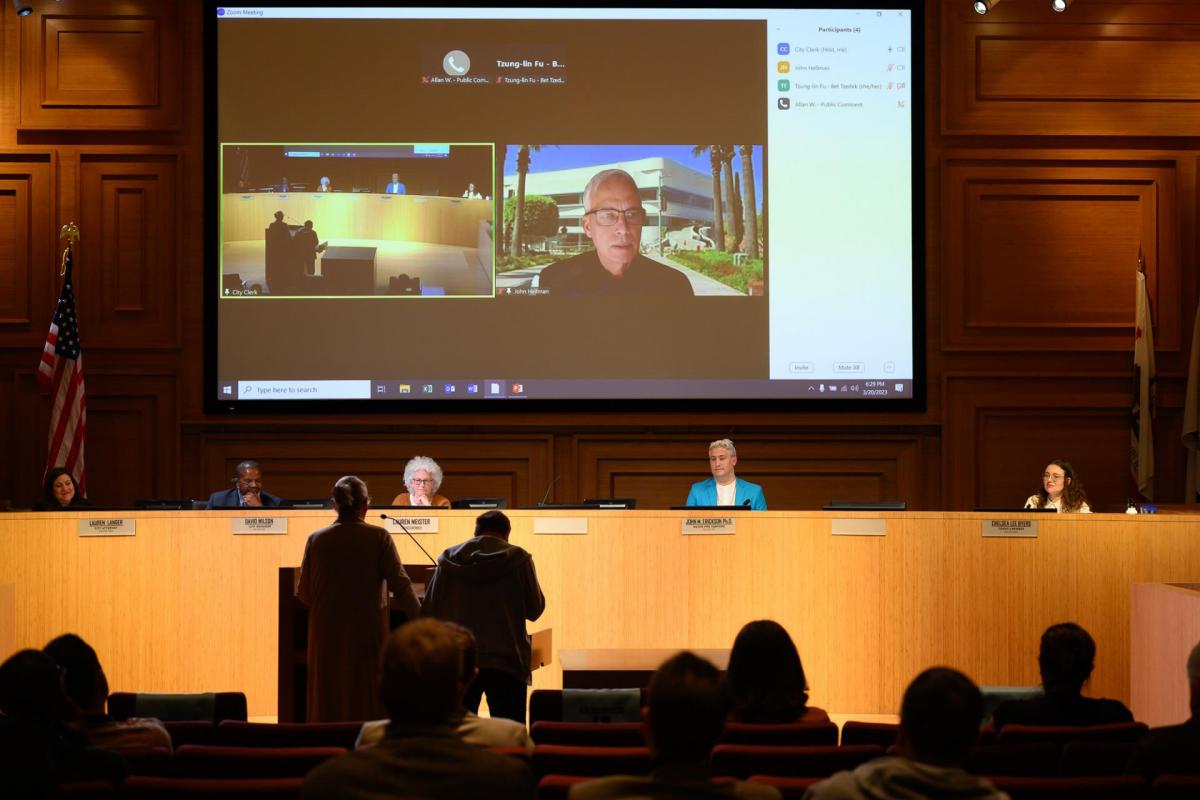What cities need to know about the state’s new remote meeting law
Ruben Duran is an Institute for Local Government board member and partner at Best Best & Krieger LLP; he can be reached at Ruben.Duran@bbklaw.com. Victoria Hester is a partner at Best Best & Krieger LLP and can be reached at Victoria.Hester@bbklaw.com.
Open meetings are akey part of transparency, engagement, and good governance. As COVID-19 concerns have receded, some local agencies are considering making remote or hybrid meetings the new normal due to the flexibility of remote working and remote public participation.
Recent changes to the Brown Act — most notably AB 2449 (Rubio, Blanca, 2022) — have given local agencies a new way to conduct hybrid meetings. However, the law has several restrictions and raises a host of administrative questions. It is important that local agencies establish a policy that provides a process for AB 2449 requests and ensures the agency is in compliance with the law. Violations of the Brown Act can result in costly legal challenges that could void the actions of the agency.
What does the new remote meeting law do?
AB 2449 provides a new, but limited, teleconferencing option that can be used when a member of a legislative body must attend a meeting remotely due to an emergency or reasons supported by “just cause.” Importantly, it allows a legislative body to hold a hybrid meeting without having to comply with the standard Brown Act teleconference rules under certain circumstances.
Using AB 2449’s just cause provision, one or more members of the legislative body (but less than a quorum) can notify the legislative body at the earliest opportunity of their need to participate remotely. This notification can come at the start of a regular meeting and must include a general description of the circumstances relating to their need to appear remotely. Just cause is restricted to:
- Child care or a caregiving need for a child, parent, grandparent, grandchild, sibling, spouse, or domestic partner that requires remote participation.
- Contagious illness that prevents in-person attendance.
- Physical or mental disability needs.
- Travel while on official business of the agency or another state or local agency.
Using AB 2449’s emergency provision, one or more members of the legislative body (but less than a quorum) can notify the legislative body of their request to participate remotely due to an “emergency circumstance.” This can be a physical or family medical emergency that prevents in-person attendance. The member must provide a general description of the circumstances relating to their need to appear remotely. However, they are not required to disclose their medical diagnosis, disability, or other confidential medical information.
For the emergency provision, the legislative body must take action on each member’s request. For their part, the member must make their request to participate remotely as soon as possible and make a separate request for each meeting in which they seek to participate remotely. The legislative body may act on the request at the beginning of the meeting if the request does not allow sufficient time to be placed on the posted agenda for the meeting for which the request is made.
Are there any other restrictions?
Members of legislative bodies who wish to use one of these provisions should contact their city clerk, city manager, and/or legal counsel before utilizing AB 2449 — and not just because of the aforementioned requirements. There are limitations on the number of times a member may use AB 2449. Specifically, a member may not participate remotely for “just cause” for more than two meetings in a calendar year.
In general, members may not use AB 2449 to participate remotely for more than three consecutive months or 20% of the regular meetings for the local agency within a calendar year. For legislative bodies that meet less than 10 times per calendar year, members may not use it for more than two meetings.
The law also includes several requirements for the structure of AB 2449 meetings. The meeting format and agendas must comply with the following:
- A quorum of the legislative body must meet in person at a single location within the agency’s boundaries.
- The agency must use either a two-way audio-visual system or a two-way phone service with live webcasting.
- The agenda must identify a call-in or internet-based access option for the public, along with the in-person meeting location.
- If a disruption to the online meeting occurs, the legislative body may take no further action on agenda items until public access is restored.
- The public must be able to provide comments in real-time. Agencies cannot require that public comments be submitted in advance.
- All votes must be taken by roll call.
During the meeting, remote members must disclose whether anyone 18 years of age or older is present in the room at the remote location and the general nature of their relationship. These members must also participate through audio and visual technology.
Are there any other options for remote meetings?
Local agencies may always rely on the traditional teleconferencing rules that applied pre-COVID instead of AB 2449. Under these rules, the teleconference locations must be identified in the agenda, copies of the agenda must be posted at all teleconference locations, teleconference locations must be open to the public, and at least a quorum of the members of the legislative body who are participating remotely must do so within the agency’s jurisdiction.
AB 361 (Rivas, Robert, 2021) an emergency remote meeting law, is also in effect through Jan. 1, 2024. The law allows cities to hold remote meetings without posting agendas in physical locations or making remote meeting sites accessible to the public during a declared state of emergency. For example, cities may still utilize AB 361 for COVID-19 if the following conditions are met:
- State or local officials continue to impose or recommend measures to promote social distancing.
- The local agency’s legislative body continues to make the required 30-day renewal findings.
Unsurprisingly, many local agencies have reverted to fully in-person public meetings.
Additional resources
Transparency, engagement, and good governance are core values of the Institute for Local Government (ILG), which remains committed to offering tools and resources to support cities navigate this new law. For more information about these changes, join ILG and Best Best & Krieger for a webinar on these changes and their implications for local agencies on June 22 at 10:30 a.m.
If your city is interested in exploring ways to maintain strong and authentic public engagement that goes beyond city council meetings, consider integrating other tools and techniques for meaningful public engagement. ILG’s public engagement training sessions offer a comprehensive approach to thoughtful and inclusive public engagement that goes beyond the usual suspects to include more in-depth outreach to key stakeholders.
The Institute for Local Government is the nonprofit, nonpartisan training and education affiliate of the League of California Cities. For more information about ILG programs and services, visit www.ca-ilg.org.


